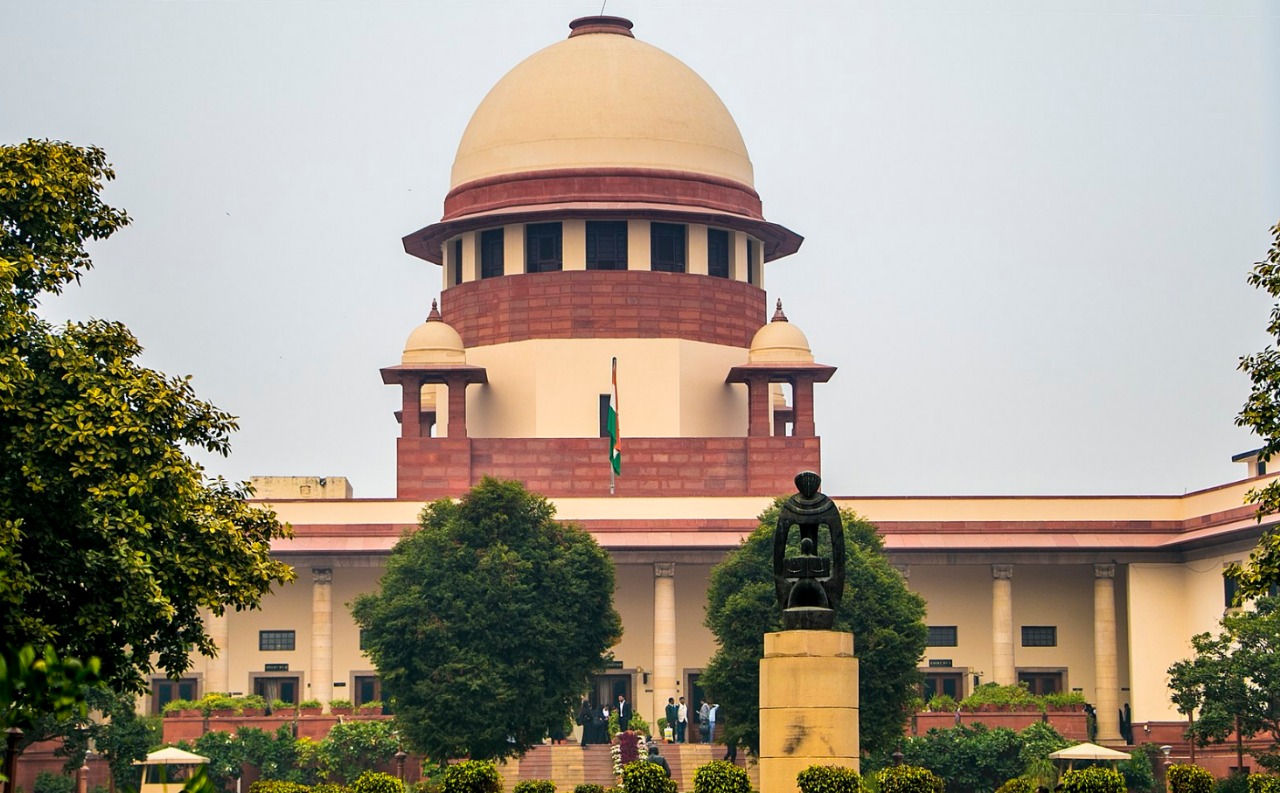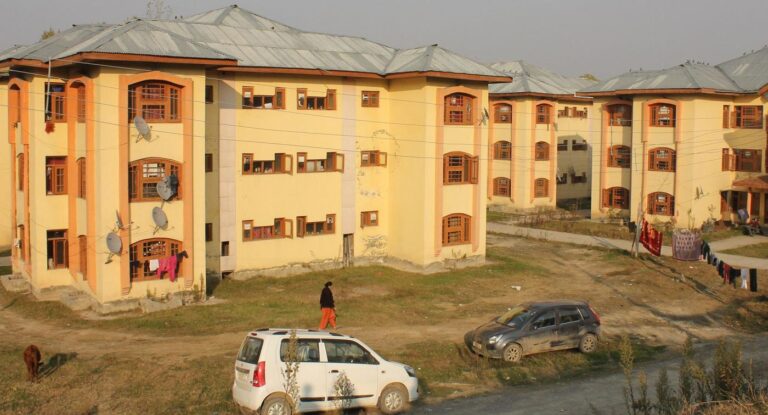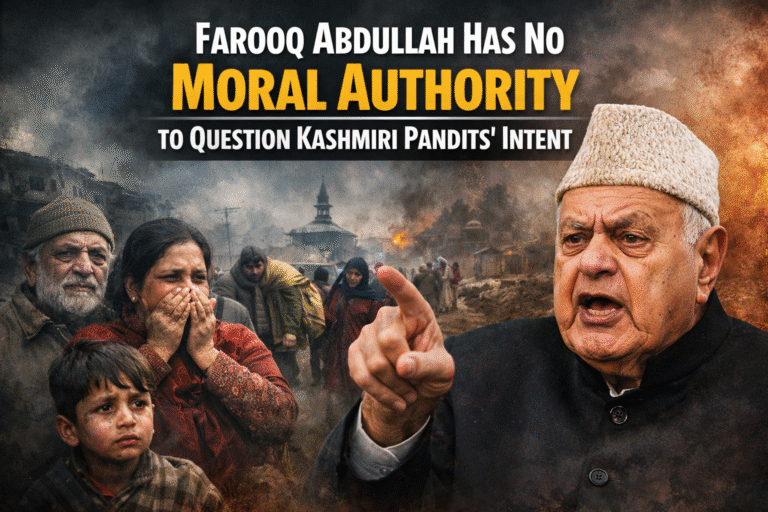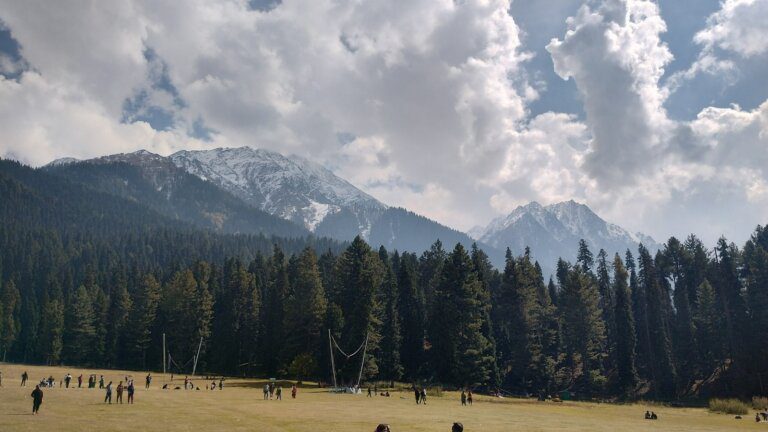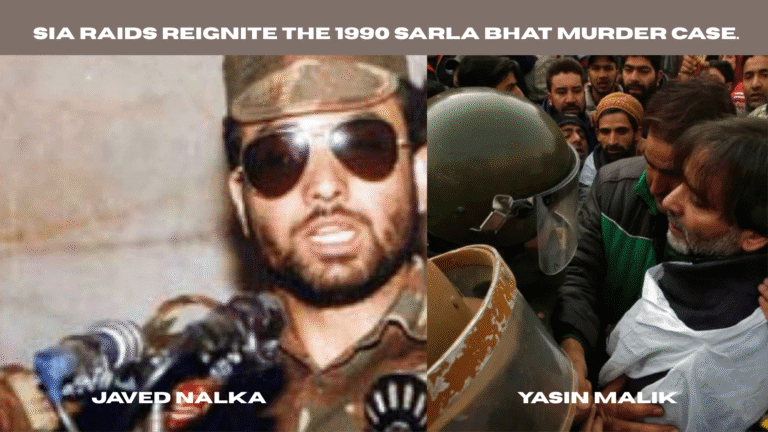On September 23, 2025, the Supreme Court dismissed Kashmiri Pandit petition for age relaxation in government jobs. For us, displaced Kashmiri Pandits, this verdict is not just a ruling. It serves as another reminder that our decades-long struggle remains unresolved.
This dismissal raises difficult questions. If other communities can secure job-age relaxations and judicial interventions years after their tragedies, why are we consistently told our requests are beyond reach? If justice is equal, why is it not equal for us?
Judicial Pattern: Why Does the Supreme Court Dismiss the Kashmiri Pandit Petition Repeatedly?
The September 2025 order continues a familiar pattern. Over the years, the Supreme Court dismissed Kashmiri Pandit petitions again and again, often citing delay or policy reasons. For us, the outcome feels like a cycle where every attempt for justice ends the same way.
This pattern prompts us to question whether our community is treated with the same level of seriousness as others.
If justice is meant to be blind, why does it seem to look away when our cases are placed before the court?
Supreme Court Dismissed Kashmiri Pandit Petition in 2017
In July 2017, the Supreme Court dismissed the Kashmiri Pandit petition to reopen 215 cases involving the killings of over 700 of our people during 1989 and 1990. The reason given was that too much time had passed.
But does justice expire with years? Crimes of such scale leave deep evidence in records, graves, and testimonies. If other communities can have cases reopened after decades, why is time treated as a final barrier only for us?
The 2022 Curative Petition and the Last Legal Door
In December 2022, the Supreme Court dismissed the Kashmiri Pandit curative petition seeking an investigation into what we described as genocide. That was our last legal option, and with its rejection, the path to justice was shut completely.
If citizens are left with no legal recourse, can we still say the system protects all equally? Does the finality of dismissal mean that our pain will never be acknowledged in a court of law?
The 2025 Dismissal as a Policy Matter
In September 2025, when the Supreme Court dismissed the Kashmiri Pandit petition for age relaxation, the reasoning was that this issue belongs to government policy, not judicial review. Yet in other cases, the same judiciary has acted in what are called “policy spaces.”
Why is this line drawn only for us? If relief is possible for others, what makes our case so different?
Petitioner’s Arguments
Panun Kashmir Trust, representing displaced Kashmiri Pandits, argued for parity in treatment with victims of other communal riots who had already received similar benefits. The petitioner’s counsel, led by Advocate Sudarshan Rajan, contended that Kashmiri Hindus should not be treated differently from:
- Victims of the 1984 anti-Sikh riots
- Those affected by the 2002 Gujarat violence
Both these groups had been granted age relaxation in the recruitment process for Group C and Group D posts under the Central government. The counsel argued: “This is a petition by victims of Kashmir riots seeking some parity along with victims of anti-Sikh riots and, if they (victims of anti-Sikh and Gujarat riots) were given some relaxation (why not us)”.
Double Standards: Why Relief for Some but Not for Kashmiri Pandits?
When we compare our struggles with those of others, the double standards become clear. Victims of other tragedies have received fresh investigations and job-age relaxations many years after their suffering. For us, every request meets the same rejection.
If equal protection of the law is a constitutional right, why are we treated differently? Why does the court or government extend compassion in one case but strict denial in ours?
Lessons from the 1984 Anti-Sikh Riots
In 2018, the Supreme Court reopened 186 cases from the 1984 anti-Sikh riots by appointing a Special Investigation Team. That happened more than three decades after the violence. In 2025, riot victims in Delhi received age relaxation of up to 55 years in job applications.
If it was possible to find evidence after 34 years in Delhi, why was it impossible in Kashmir after 27 years? If relaxations were granted there, why was the Supreme Court dismissing the Kashmiri Pandit petition for the same relief?
Relief for Victims of the 2002 Gujarat Riots
For victims of the 2002 Gujarat riots, the Central government provided a five-year job-age relaxation for 18 consecutive years, which ended only in March 2025. This proves such measures are not extraordinary.
If long-term relaxations were available for others, why was our request labelled a matter beyond consideration? Does fairness not demand equal treatment?
Political Use Without Empowerment
Our tragedy is often raised in speeches, campaigns, and debates. Yet when it comes to policies, we remain sidelined. This creates a painful contrast between words and action. Are we citizens with rights or symbols used for votes?
Political leaders often highlight our story during elections. But once votes are secured, the urgency disappears. If our suffering is worth invoking in campaigns, why is it not worth addressing in governance?
Do Numbers Define Our Value in Democracy?
Because our numbers are small, we cannot decide elections. But should democratic systems decide justice based on numbers? True democracy is judged by how it treats minorities and vulnerable groups, not by the number of votes they receive.
If our community is ignored because of its size, then what does equal citizenship really mean? Is justice in India only available to groups with electoral power?
Why the Gap Between Promises and Delivery?
In 2014 and 2019, manifestos spoke of rehabilitation and dignity for us. By 2024, those promises disappeared. How can we trust commitments that vanish when inconvenient?
If political promises are dropped so easily, where does accountability lie? Should not promises made to displaced citizens be binding on those who make them?
Systemic Exclusion in Law and Daily Life
Exclusion is not limited to courtrooms or politics; it also affects everyday life. It is visible in how we live our daily lives. Bureaucratic hurdles, constitutional silence, and cultural erosion define our reality as much as legal dismissals.
Those of us who stayed in the Valley face constant neglect in rehabilitation schemes. With Time, Kashmiri Pandits are leaving Kashmir unabated.
Despite being victims of persecution, we are denied the protections that minorities elsewhere in India enjoy. What does it mean when a community is erased legally while still existing in reality?
Cultural loss is another wound. Our language weakens among the younger generation, and festivals feel incomplete in exile. If identity fades over time, will our story survive at all?
Institutions and Responsibility
When we examine the three pillars of democracy, we find silence in all of them. The judiciary dismisses petitions, the executive announces packages that remain incomplete, and the legislature fails to enact protective laws.
The judiciary says delay or policy prevents action. The executive claims to announce relief but rarely implements it fully. The legislature has left us without any defined status in law. Together, these failures create a vacuum where we exist without protection.
If all three branches step aside, are we still included in the democracy we call our own? If our suffering is excluded at every level, can the system still claim to be fair?
Facts About BJP’s Promises and Our Reality
- Supporting governments under which our exodus took place in 1990
- Prioritising other political issues instead of confronting our genocide
- Including us in manifestos in 2014 and 2019, but removing us in 2024
- Freezing relief since 2018 despite inflation and repeated appeals
- Using our tragedy in campaigns while delivering little in practice
- Failing to provide adequate housing, jobs, and rehabilitation
Each of these points reflects not just politics but broken trust. How can a community move forward when promises are repeatedly made and then abandoned?
To explore more, read the article here
The Consequence of the 2025 Supreme Court Dismissal
With this dismissal, the deeper reality is exposed. In our democracy, suffering alone does not bring recognition. Numbers and electoral influence often outweigh justice.
If our small population makes us politically expendable, then what is the meaning of equal citizenship? Should not the protection of vulnerable groups be the very test of democracy?
Conclusion: Dignity Still Denied
Our story is not just about displacement. It is about the institutions of democracy leaving us without remedy. Courts have dismissed us, governments have ignored us, and legislatures have failed to recognise us.
The Supreme Court dismissed the Kashmiri Pandit petition for age relaxation in September 2025. That verdict was not only about employment. It was about dignity. It told us that our rights can be spoken of in campaigns but not defended in policy.
Until India answers why our petitions are dismissed while others are granted relief, we will remain remembered in rhetoric but forgotten in reality. The unresolved question is simple: are we citizens with equal rights, or are we only symbols in speeches?
FAQs on the Supreme Court Dismissing the Kashmiri Pandit Petitions
Q: Why did the Supreme Court dismiss the Kashmiri Pandit petition for age relaxation in government jobs in 2025?
A: The Supreme Court dismissed the petition on September 23, 2025, stating that matters of age relaxation in jobs are policy decisions for the government, not judicially enforceable rights. The Court observed such issues fall within the executive domain and declined to interfere.
Q: Has the Supreme Court dismissed Kashmiri Pandit petitions before 2025?
A: Yes. In 2017, a petition to reopen cases related to the killings of Kashmiri Pandits was dismissed due to delay. In 2022, a curative petition seeking an SIT probe into genocide was rejected, continuing a pattern of judicial non-intervention in these matters.
Q: Why are Kashmiri Pandits seeking age relaxation benefits?
A: Displaced in 1990, many Kashmiri Pandits lost years of education and employment opportunities. Age relaxation is viewed as compensation for the lost years, enabling equal access to government jobs and helping to rebuild livelihoods.
Q: Have other communities received age relaxation or similar relief?
A: Yes. Victims of the 1984 anti-Sikh riots were granted job age relaxation up to 55 years in Delhi. Survivors and kin of the 2002 Gujarat riots have received five years of age relaxation in central government jobs for many years.
Q: What does the 2025 Supreme Court dismissal signify for Kashmiri Pandits?
A: The dismissal reinforces a judicial trend of treating such petitions as policy issues outside the Court’s scope, despite similar relief granted to others. The community views it as a denial of recognition and dignity for their decades-long displacement
The dismissal reinforces a pattern of judicial rejection. It signals that our community’s petitions are often treated as matters outside the court’s scope, even when similar relief has been extended to others. For us, it is not just a legal order but a denial of recognition and dignity.

